Freeths and Property Week brought together a panel of experts from across the industry to discuss how proptech innovations can help the real estate industry deal with challenges such as economic headwinds, the shift to hybrid working and deep societal issues such as combatting climate change.
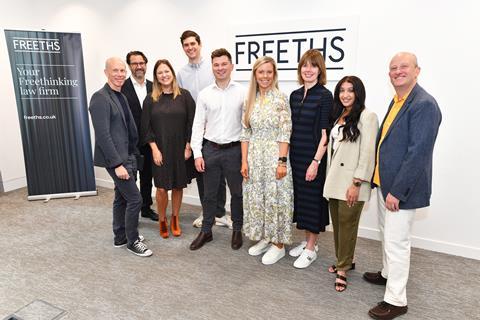
Panel of experts
Max Beard, senior proptech analyst, Knight Frank
Pavlos Clifton, senior development executive, Helical
Savannah de Savary, founder and chief executive officer, Built-ID
Sally Jones, venture partner, PropTech1
William Newton, president and managing director, WiredScore
Sammy Pahal, managing director, UK PropTech Association (UKPA)
Katie Whipp, head of innovation and strategy, Trustek
Darren Williamson, national head of real estate, Freeths
Chair: Andrew Saunders, contributing editor, Property Week



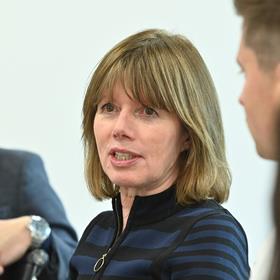


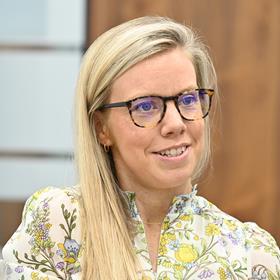

The 2023 Proptech survey from Property Week and Freeth’s found that while interest from the property sector in the potential of innovative technology remains high, many companies are taking a ‘wait and see’ approach to investing in it, because of the current uncertain market conditions. Attendees at the recent Freeth’s-hosted think tank discussed whether that chimed with their experience, and what risks are associated with such a passive strategy.
William Newton: We would all acknowledge that the adoption of proptech over the past eight years has been lamentably slow, even though for most of that time, things were going fantastically well for the property industry.
But now when we think about whether to wait and see or adopt new technology immediately, it’s a very different environment and a very different calculation to the one that would have been made a few years ago. The property industry globally is suffering from the combination of hybrid working, higher interest rates and higher inflation, and consequently we are seeing a shift in mentality from proptech being something to experiment with to something where you’ve absolutely got to go for it, because technology is part of the solution to those problems.
The imperative to embrace change has never been higher. Our own research shows that 43% of investors would not invest in any development that didn’t have technology at the core of its offering.
Pavlos Clifton: There is an opportunity for proptech to be part of the solution, but it must be a measured opportunity. We’ve all heard stories like the office building where iPhone 4 chargers were hardwired in back in 2010 and now they are obsolete – that’s the kind of technology knee jerk reaction that has to be avoided.
Sally Jones: It is easier to integrate proptech in a new development rather than in existing buildings, because in new developments, there is the capital to do it. In older buildings, if you’ve got a leasing event, sometimes there’s a bit of budget, but if there’s nothing going on, it’s very difficult. The internal infrastructure can be complicated, and you can’t always make a case for it.
Sammy Pahal: There is some hesitancy around proptech because of the current climate. However, there are also many more drivers to adopt technology, and much more seriousness about where technology should be implemented. You must be considered about how you do that and who you work with – it is important to set up the right environment within the organisation so you can trial technology properly and make decisions based on what is working and what isn’t.
What are the key factors hindering the faster uptake of proptech?
Max Beard: It can be a bit of a Catch 22 – obviously, the proptech start-ups want the big property companies and landlords to use their product, but often they come to us without any case studies or hard facts about what they can achieve in terms of efficiency or operational expenditure. We need some facts to be able to take a proptech solution to our clients, because the risk to them if something goes wrong can be considerable.
Savannah de Savary: One of the challenges, especially with some of the latest artificial intelligence technologies, is that companies prefer to start with a small scale pilot. The savings you can make by taking some innovative risks can be huge, but often to really see that return on investment you have to commit and roll them out. Flirting with innovation via small-scale trials isn’t compatible with where technology is going.
Jones: Property is a complicated ecosystem. You’re not Unilever, you don’t own or control most of your supply chain; instead, you’ve got different owners, different managers, and they all must be persuaded. If you want to adopt access control, for example, you have to get it in the service charge.
So not only do you have to persuade someone that it’s the right technology, you then need to go to the property manager and get it in the service charge. That can take a year. There’s a lot of grit in the system.
Katie Whipp: The proptech world doesn’t always help itself. There are 10,000 solutions out there and it can be overwhelming, especially if you are buying. People are getting four or five emails a day saying ‘buy my product’. There’s a huge amount to navigate and – as always in real estate – we make it really complicated.
Darren Williamson: Many law firms have become involved in incubating proptech providers, and property firms like British Land also do it. More of this could help to bridge the gap in understanding between proptech and property.
Can proptech help breathe new life into struggling secondary office portfolios?
Jones: Some secondary offices have ‘good bones’ – they are really prime offices masquerading as secondary ones and not massively challenging to upgrade, although obviously, there has to be an appropriate change in values so that the economics of that pathway stack up.
But there are also those buildings that are unsalvageable, where no amount of retrofitting can make them the buildings you need them to be in the new environment and the economics just don’t make sense. Tech can help you understand what kind of buildings you have got and how sustainable they are from an environmental, social and governance [ESG] point of view, but I don’t think that good tech alone can save a bad building.
Tech can help you understand what buildings you have and how sustainable they are from an ESG point of view
Sally Jones
Clifton: It feels tantalisingly like proptech should be the solution. You have to address embodied carbon as well as operational efficiency, and secondhand stock has a good embodied carbon story. If you combine that with the improvements you can make in energy consumption using technology, then you are making real inroads into the ESG element.
Unfortunately, the market is pushing us in completely the opposite direction – away from secondhand stock and towards prime quality offices.
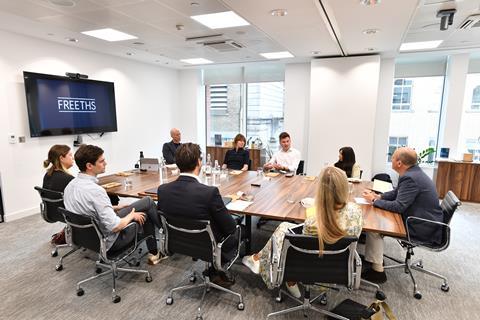
Whipp: A lot of proptech companies’ case studies are based on nice shiny new buildings rather than on more challenging secondary or tertiary assets. But in the context of ESG, if you are going to demolish a building, where proptech can help is by giving you data and metrics to show why you have done that, and to provide some consistency around decision making across your portfolio.
What does the merger of the UK PropTech Association (UKPA) and British Property Federation (BPF) mean for the industry?
Pahal: We’ve been working with the BPF for years in partnership. The merger is about bringing our networks even closer together into one community so we can drive change even more quickly. There is pressure to tackle big societal issues like climate change, and a recognition that technology will play a critical role in doing so. In the six years that the UKPA has been around, attitudes to technology have really changed, it’s no longer about why you should innovate, but how to do it well, and faster.
There is growing pressue to tackle big societal issues like climate change and a recognition that technology will play a critical role
Sammy Pahal
Beard: It is very exciting. We don’t have answers as yet for a lot of the big problems we face, they will only come through innovation. This merger will provide an arena to foster that innovation and help us get closer to having better answers to those big problems.
Will artificial intelligence be as transformative in property as it is predicted to be in other walks of life and business?
Clifton: Yes. The industry is getting increasingly complex and the amounts of information required are getting increasingly larger, while the margins are getting smaller. We need AI to help us navigate that, just to maintain profitability.
De Savary: At Built-ID we are using generative AI to analyse community-generated data. It’s astonishing what it can do, from writing reports to performing cross-analysis and predictive analysis.
We have a lot of demographic data and we layer it that so we can say that if you are from a certain economically deprived community, in a particular age group and with this many occupants, these are your key concerns and priorities, and here is how they change when the facilities in your location are improved. That would take so long for a human to do that I don’t think you’d ever get round to it. But AI is not just faster, it’s better too.
Newton: I completely agree, but to sound a note of caution, we need to be careful, particularly about what we are doing with data and AI. We are still in the early stages and most firms do not have the appropriate level of concern when they are, for instance, uploading data to large language models such as ChatGPT. Proptech companies shouldn’t just be whacking things into ChatGPT, because they might be ingesting client data and then uploading it to an open platform that can never ‘unlearn’ that data.
We need a responsible and traceable path for why we are using that data, where it is being stored and how it is going to be used in future. If we don’t have that, there’s a danger that scandals will reveal sensitive information and set us back quite a long way. They could even spoil AI for the entire ecosystem.





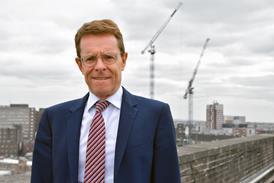










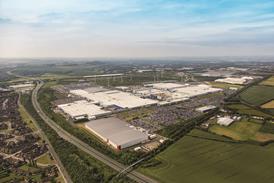


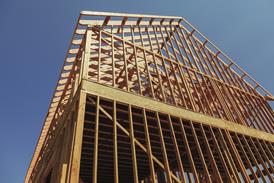





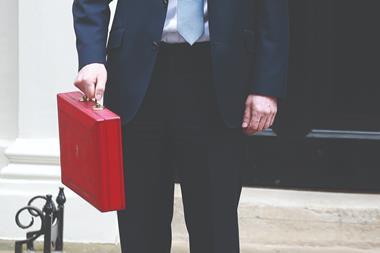
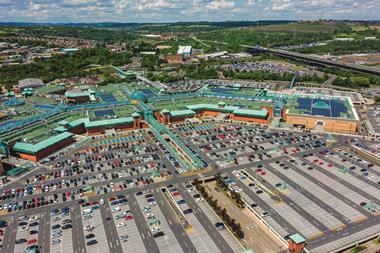

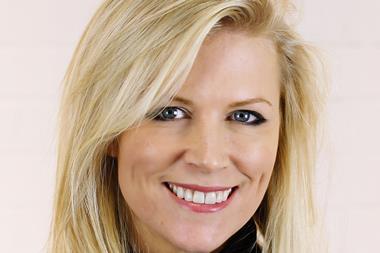


No comments yet